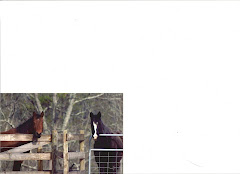Michael was given his grandfather’s radio a few years ago. It is a tall floor model with a beautiful wooden case and a phonograph that slides out below the radio. It is so powerful that you can hear BBC broadcasting from London. In the mountains of north Alabama, Michael’s grandparents and family would sit in the living room/master bedroom/all purpose room next to the kitchen listening to the world beyond. A collection of records from Michael’s dad contains two treasures... Clarence Jordan reading his Cotton Patch Gospels and Martin Luther King preaching at the Washington March. I listen to those two voices from the south and am struck by the power of their preaching and the changes that have come because of their living with us.These two men were alike in many ways. Both were very well educated, seminary trained and a part of a culture that denied the most basic human rights to a majority of the south’s people.
Clarence Jordan, a Greek scholar, a part of the Southern Baptist church, took the gospel seriously and heard his call. He established a farm in southwest Georgia near Americus (and Plains) that included both races as owner/farmers living and working together. They were bombed, boycotted and ostracized by the local community. Jordan wrote the Cotton Patch Gospels to help support the farm and spoke at seminaries, churches and other venues to promote the cause of gospel justice for all. Habitat for Humanity came into being at the farm because of Jordan’s prophetic life.
Martin Luther King was a part of the elite educated upper class. His father was an influential preacher and as a PK, Martin saw the church at its best and its worst. He became a preacher himself and one with great charisma and power. The African American preaching tradition is not a static experience confined to Sunday morning pews. It lifts you up, gets you to shouting and moves you on out. King knew his people, black and white, and he knew how to use his preaching gift to inspire change. His earlier ministry was devoted to the cause of racial equality but at the time of his murder, he had begun to work for the poor and call for peace.
Neither of these men was perfect. The after death practice of erasing a persons flawed humanity is not confined to your alcoholic Uncle Joe... "Poor soul. He was so generous and kind. (And drunk ninety percent of the time)." We do them and ourselves a disservice by pretending they were superhuman beings. It removes the possibility of our following in their footsteps. These two men were men who heard and heeded a call that also is extended to us. If they could do it, so can we.
Prophets are notoriously difficult to live with. They are always out on a mission, never home to unstop the drain, don’t make it to the PTA programs and miss the recitals and ball games. The families of prophets have a tough row to hoe without any of the fruits of the labor.
They often carry a burden not of their own choosing, a way of life that is as dangerous and public as the prophet they live with. I wonder sometimes about Jeremiah’s wife, and Isaiah’s family, and John the Baptist’s mother and father. When one hears a prophetic call, those who love you best lose you. Jesus did say we must be prepared to give up our families. Prophets often do.
I am grateful for these two prophets in my time. They came from my people in the south, black and white. Their lives changed the course of history and honored the One they worshiped. This Sunday I will play the records and listen to the voices of these two human beings who did great things for their God. I will remember that even though I am not called to be a prophet, I am called to live as one who has been redeemed. I can be the Face of God for those in my community who are the least of these. And in the living of my call, I can hear the voices of those who have gone before saying, "Good for you, girl. Now get on outta here and get on with it. Remember you are God’s girl and live up to your family name."
Thursday, January 17, 2008
Monday, January 14, 2008
the sweepstakes...
When we lived in Columbia, South Carolina, my friend Toni would call. "Did you get your Publishers Sweepstakes mailer?" She would come over, small children in tow, and we would fix a cup of tea while we filled out the forms. While drinking the tea, we would imagine what we would do with a million dollars. First, of course, we would tithe ten percent to the church. Then we would let our imaginations run amok with possibilities. We would pay off the house mortgage, buy a new car, send parents on vacations, save for college funds. We kept a running tally and suddenly the money was gone. It was such fun imagining how generous we would be and how wonderful it would be not to have to decide whether to pay Peter or Paul this month. I have yet to win anything but I still enter the contests.
I have some friends who have made a lot of money... a LOT of money... relatively late in life through hard work, good ideas, good luck, good timing and a willingness to risk. Having money removed some burdens from their lives but interestingly enough, added some unforseen responsibilities. One friend has had to hire someone to manage requests for money after making some public gifts that put him on the short list of big givers. If you are the owner of a company, you feel responsible for those who work for you. Medical insurance, retirement, and daily bread for those in your business... these employees depend upon you keeping the business fresh and productive. What was energizing and creative while you were building your company runs the risk of becoming confining and constrictive. Having a lot of money is both gift and curse and it doesn’t matter if you inherited it or earned it.
I am fascinated with the public and religious perspective on poverty and wealth. Somehow the rich myth ( always white and Republican) in our church culture has taken on new life. One cannot be rich and follow Jesus. People who truly desire peace and justice for the world must feel guilty for the abundance in their lives goes the myth. We live in a rich country and we have more than most of the rest of the world. The rich young ruler who was unable to give up his wealth for Jesus’ sake is the poster child for this movement. If you are rich, shame on you. We all know it is harder for a rich person to go to heaven. Jesus said so, didn’t he?
We forget all the rich people who were a part of the Jesus Movement. Mary, Martha and Lazerus were at least upper middle class. Nicodemus, a part of the religious ruling class, was rich enough to buy a tomb for Jesus. Many of the people healed by Jesus were wealthy and a part of the establishment. Remember the ruler of the synagogue whose daughter died? His need was not put to the sliding fee scale test. Jesus’ ministry was not confined to the poor or the rich but to the needy.
And contrary to the politically correct interpretation of poverty, not all poor people are virtuous. Poverty in and of itself does not confer a mantle of sainthood upon a person. Poor people like rich people and middle class people, come in a variety of styles and sizes. Poor people, like rich people and middle class folks, can steal and lie and cheat. The scale may be smaller but the act is the same. The person who stole a handcrafted box from our church art gallery is as much a thief as the CEO of a large corporation making millions more than the company’s employees.
And then there is that disturbing story in the gospels of Matthew and John. "When Jesus was at the home of Simon the wino in Jonesboro, a woman with a very high priced bottle of perfume came and dabbed it on him while he was eating. When the students noticed it, they boiled over: ‘What’s going on? Why waste this when it could be sold for a neat sum and used for the poor?’ Jesus got wind of it and said,’Why are you bitching at the lady? She has done something beautiful for me. You have poor people with you all the time, but you don’t have me all the time. By putting this perfume on my body she has prepared me for burial. I assure you wherever the gospel is preached she will be remembered for what she has done.’"(the Cotton Patch Gospels)
So what do Christians do about money? For those Christians who have a great deal of money, live and share without guilt but in gratitude for all your blessings. Gifts given from gratitude tend to be larger than grudge gifts given in guilt. It is an insult to the One who has blessed you to give without joy. For those in the middle, give with gratitude and the awareness that we in the middle are also rich and can give what we are able. For the poor, like the widow in the Gospel, you are not let off the giving hook just because you are poor. Jesus held up the widow’s mite as an example of giving. It was given freely, quietly and joyfully not publicly, coerced or grudgingly. When we all share our money, however small or large the gift, we put a down payment on a piece of the Kingdom, for where our hearts and our monies are, there is our treasure.
Honest wealth is no sin nor is honest poverty or honest middle class. The money is not the problem. Our first love is the problem. Somehow we must put the God Movement first, learn to love God with our whole selves and come to a way of living filled with gratitude, giving because we have been given much. An old hymn says "Out in the highways and byways of life, many are weary and sad. Carry the sunshine where darkness is rife, making the sorrowing glad. Tell the sweet story of Christ and his love, tell of his power to forgive. Others will trust him if only you prove true every moment you live. Give as was given to you in your need, Love as the Master loved you. Be to the helpless a helper indeed, unto your mission be true. Make me a blessing, make me a blessing. Out of my life, may Jesus shine. Make me a blessing, O Saviour, I pray, make me a blessing to someone today."
I entered the HGTV House give away contest today. If I win, I will celebrate and share my good fortune with others. If I don’t win, I will still celebrate and share my good fortune with others seeking to be a blessing, not buy one.
I have some friends who have made a lot of money... a LOT of money... relatively late in life through hard work, good ideas, good luck, good timing and a willingness to risk. Having money removed some burdens from their lives but interestingly enough, added some unforseen responsibilities. One friend has had to hire someone to manage requests for money after making some public gifts that put him on the short list of big givers. If you are the owner of a company, you feel responsible for those who work for you. Medical insurance, retirement, and daily bread for those in your business... these employees depend upon you keeping the business fresh and productive. What was energizing and creative while you were building your company runs the risk of becoming confining and constrictive. Having a lot of money is both gift and curse and it doesn’t matter if you inherited it or earned it.
I am fascinated with the public and religious perspective on poverty and wealth. Somehow the rich myth ( always white and Republican) in our church culture has taken on new life. One cannot be rich and follow Jesus. People who truly desire peace and justice for the world must feel guilty for the abundance in their lives goes the myth. We live in a rich country and we have more than most of the rest of the world. The rich young ruler who was unable to give up his wealth for Jesus’ sake is the poster child for this movement. If you are rich, shame on you. We all know it is harder for a rich person to go to heaven. Jesus said so, didn’t he?
We forget all the rich people who were a part of the Jesus Movement. Mary, Martha and Lazerus were at least upper middle class. Nicodemus, a part of the religious ruling class, was rich enough to buy a tomb for Jesus. Many of the people healed by Jesus were wealthy and a part of the establishment. Remember the ruler of the synagogue whose daughter died? His need was not put to the sliding fee scale test. Jesus’ ministry was not confined to the poor or the rich but to the needy.
And contrary to the politically correct interpretation of poverty, not all poor people are virtuous. Poverty in and of itself does not confer a mantle of sainthood upon a person. Poor people like rich people and middle class people, come in a variety of styles and sizes. Poor people, like rich people and middle class folks, can steal and lie and cheat. The scale may be smaller but the act is the same. The person who stole a handcrafted box from our church art gallery is as much a thief as the CEO of a large corporation making millions more than the company’s employees.
And then there is that disturbing story in the gospels of Matthew and John. "When Jesus was at the home of Simon the wino in Jonesboro, a woman with a very high priced bottle of perfume came and dabbed it on him while he was eating. When the students noticed it, they boiled over: ‘What’s going on? Why waste this when it could be sold for a neat sum and used for the poor?’ Jesus got wind of it and said,’Why are you bitching at the lady? She has done something beautiful for me. You have poor people with you all the time, but you don’t have me all the time. By putting this perfume on my body she has prepared me for burial. I assure you wherever the gospel is preached she will be remembered for what she has done.’"(the Cotton Patch Gospels)
So what do Christians do about money? For those Christians who have a great deal of money, live and share without guilt but in gratitude for all your blessings. Gifts given from gratitude tend to be larger than grudge gifts given in guilt. It is an insult to the One who has blessed you to give without joy. For those in the middle, give with gratitude and the awareness that we in the middle are also rich and can give what we are able. For the poor, like the widow in the Gospel, you are not let off the giving hook just because you are poor. Jesus held up the widow’s mite as an example of giving. It was given freely, quietly and joyfully not publicly, coerced or grudgingly. When we all share our money, however small or large the gift, we put a down payment on a piece of the Kingdom, for where our hearts and our monies are, there is our treasure.
Honest wealth is no sin nor is honest poverty or honest middle class. The money is not the problem. Our first love is the problem. Somehow we must put the God Movement first, learn to love God with our whole selves and come to a way of living filled with gratitude, giving because we have been given much. An old hymn says "Out in the highways and byways of life, many are weary and sad. Carry the sunshine where darkness is rife, making the sorrowing glad. Tell the sweet story of Christ and his love, tell of his power to forgive. Others will trust him if only you prove true every moment you live. Give as was given to you in your need, Love as the Master loved you. Be to the helpless a helper indeed, unto your mission be true. Make me a blessing, make me a blessing. Out of my life, may Jesus shine. Make me a blessing, O Saviour, I pray, make me a blessing to someone today."
I entered the HGTV House give away contest today. If I win, I will celebrate and share my good fortune with others. If I don’t win, I will still celebrate and share my good fortune with others seeking to be a blessing, not buy one.
Subscribe to:
Comments (Atom)








